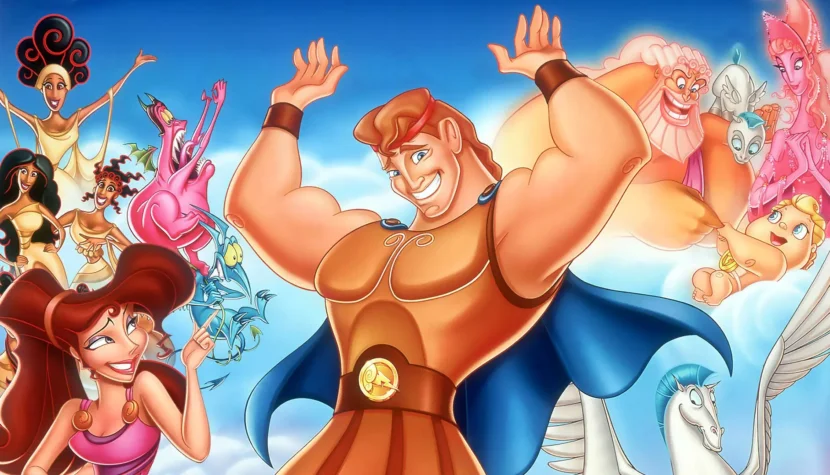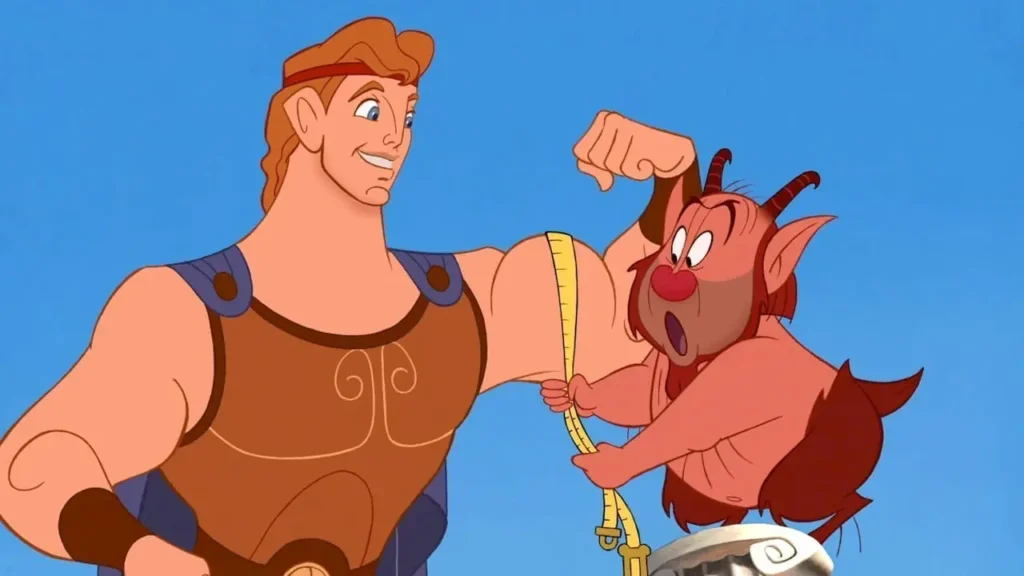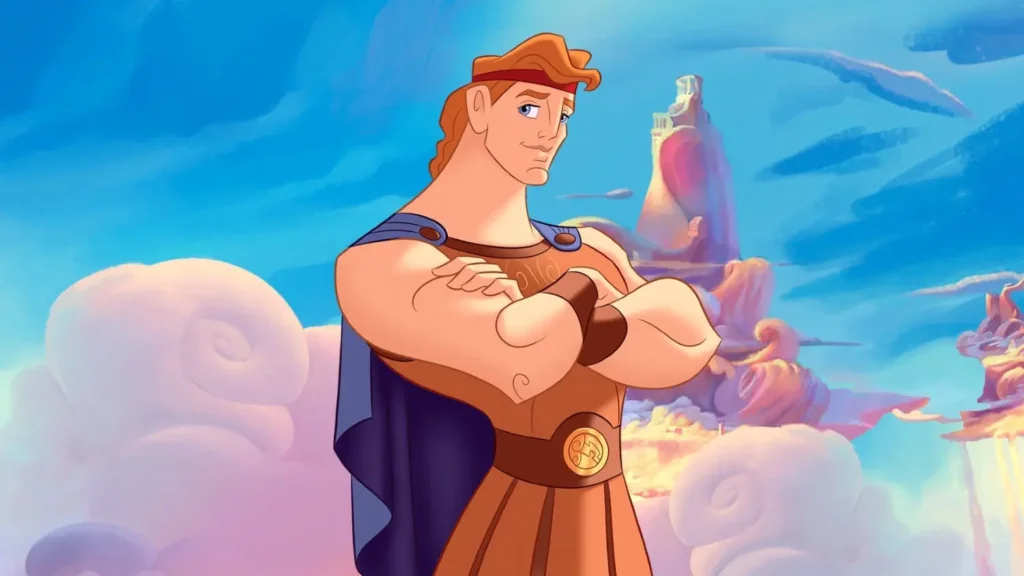HERCULES. Example of the true triumph

Greek mythology has been adapted for film many times. Perhaps the most notable example is the 1981 film “Clash of the Titans”, whose popularity led to a remake in 2010. At some point, it was realized that with some adjustments, the messages from Greek myths could also be valuable for a younger audience. This led to the creation of “Hercules” in 1997, a Disney production. It’s important to highlight right away that never before or since has Greek mythology been so engagingly presented in a film specifically aimed at children.
The idea for an animated film based on Greek myths was conceived in 1992. Interestingly, the original plan was to adapt Homer’s “Odyssey”. However, the producers quickly abandoned this idea when they realized how difficult it would be to turn the source material into a light-hearted adventure comedy. The first draft of “Hercules” was actually tied to the Trojan War. From that concept, one important idea was preserved and used in later versions of the script—the motif of the Trojan horse as a symbol of intelligence being more valuable than mere physical strength.
The directorial duties for the project were offered to John Musker and Ron Clements, who had previously created “The Little Mermaid” and “Aladdin” for Disney. However, they were in the middle of preparing “Treasure Planet“. The studio made a deal: “Treasure Planet” would only get the green light after Musker and Clements directed “Hercules”—a project explicitly designed for commercial success. The directors saw this as an advantage. As they emphasized in interviews, they viewed it as an opportunity to create a unique superhero movie. After all, the script centered around one of the most archetypal and heroic figures in Greek mythology.

The film premiered in 1997, meaning it has been over twenty years since its release. Today, I remember it as one of the last great monuments to traditional, hand-drawn Disney animation (in two dimensions)—a form so popular in the 1990s. Though this technique continued to be used later, I feel that its more polished, digitally enhanced versions lacked the same charm. However, “Hercules” offers a glimpse of the coming era of CGI animation, particularly in the scene featuring the Hydra, a creature created with computer graphics.
Several well-known actors were cast to voice the characters, with the standout being James Woods, who delivered a brilliant performance as Hades, the main antagonist. Woods was given complete freedom in interpreting the character, completely overturning the creators’ original vision of a calm, slow-speaking Hades. The actor has often mentioned in interviews that voicing the fiery, temperamental ruler of the underworld was such fun for him that it became one of his favorite roles in his entire career. This enthusiasm is likely why he eagerly returned to the role for the “Hercules” TV series, which aired from 1998 to 1999 on ABC.
When examining what “Hercules” has to offer, it’s worth noting that the film doesn’t provide a faithful account of the mythological hero’s story. Had it done so, Musker and Clements’ film probably wouldn’t have been suitable for a young audience. Greek mythology is full of brutal battles, intrigue, and betrayal—the myth of Hercules is no exception. The creators thus agreed that certain themes and characters had to be altered or smoothed over.

The first inaccuracy is in the title itself. The famous hero is called Hercules in Roman mythology, whereas in Greek mythology—the source material for the film—his name is Heracles. In the movie, Hercules’ main adversary is Hades, the god of the underworld. However, in the original myths, Hercules’ conflicts with the gods most often involved Hera, his stepmother. In the film, she is portrayed as his mother, which is another inaccuracy, as Hercules was actually the son of Zeus and the mortal woman Alcmene. Furthermore, Pegasus didn’t come from the clouds but from the blood of Medusa, and he wasn’t Hercules’ companion, but Perseus’. Hercules’ mentor, Phil (short for Philoctetes), wasn’t a satyr, but a human, and he wasn’t a hero trainer. The Fates didn’t share one eye—that’s a trait of the Graeae, another trio of sisters. Finally, while Megara was indeed Hercules’ wife, their story didn’t have a happy ending—Hercules, in a fit of madness caused by Hera, killed her and their children.
There are, of course, more differences. But do these discrepancies matter from the audience’s perspective? Not at all. The strength of the film lies in the fact that it treats the source material like a fruit—after discarding the unnecessary peel, seeds, and flesh, what remains is an easier-to-digest but still flavorful juice. “Hercules”, in my opinion, is another example of the true triumph of what we understand as popular culture—a vast, eclectic mix in which elements from various art forms blend to create unique compositions characterized by accessibility and vibrancy. The film’s tone is also well-suited to its genre, combining comedy and adventure based on the universally appealing “zero to hero” narrative, a particularly popular theme among American audiences. Ultimately, the film delivers an important moral: even a legendary figure like Hercules can only become a hero through his own actions and hard work, not through birthright. There couldn’t have been a better way to use this archetype.

